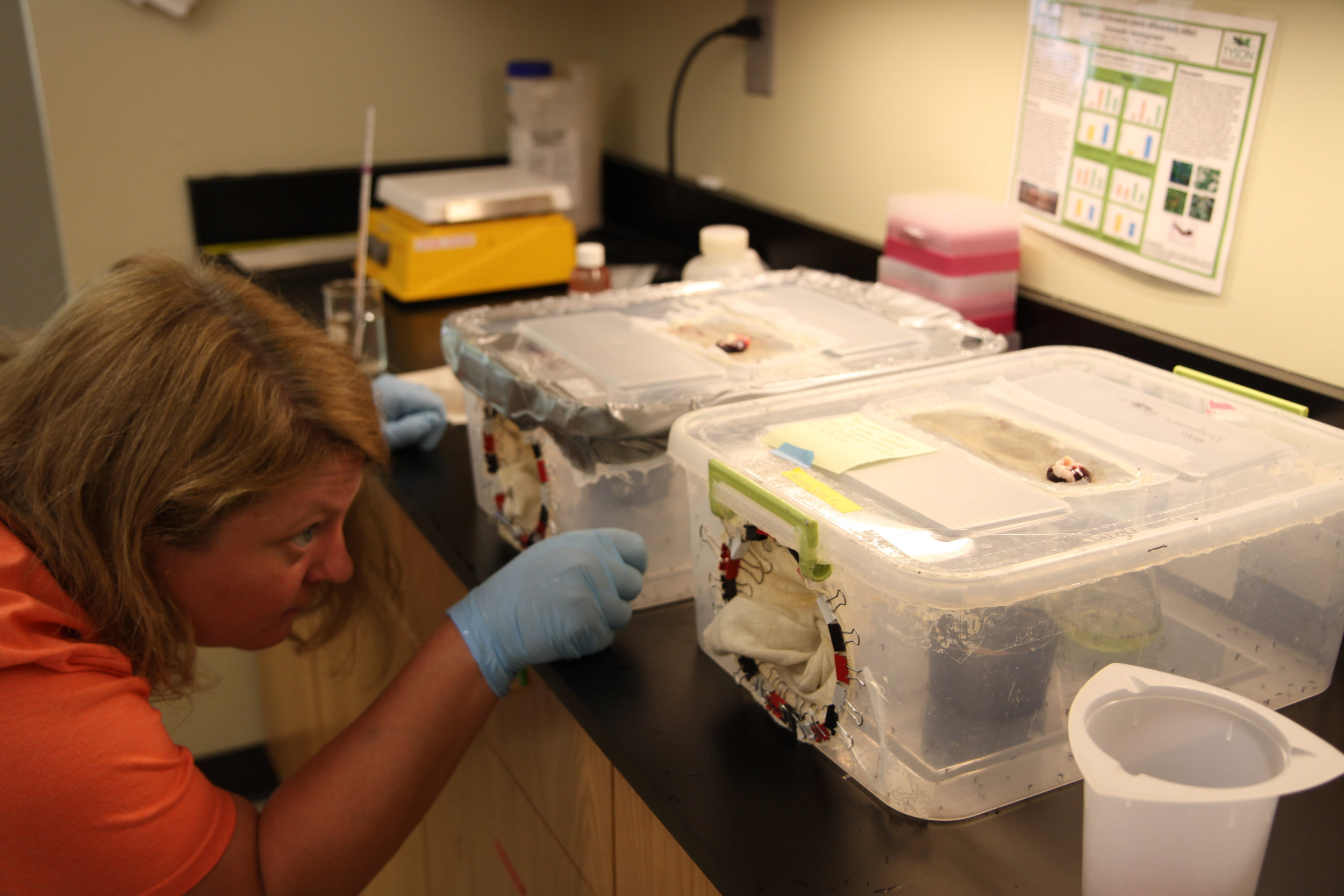As more than 50% of the human population now resides in cities, understanding the influence of humans on ecological and evolutionary processes in and between urban areas becomes critical to advancing modern eco-evolutionary theory. Urban ecosystems differ functionally from their rural counterparts, and a growing body of evidence has revealed that selection pressures imposed by urban landscapes can drive adaptive evolution. Less is known about how altered rates of migration and admixture, resulting from human-aided movement, affect adaptive evolution within urban landscapes. Species invasions provide a ripe testing ground for parsing out the effects of these processes on evolution over contemporary timescales.
To better understand how cities influence ecology and evolution of invasive species, we are studying the invasive Asian tiger mosquito (Aedes albopictus) along an urbanization gradient in the St. Louis region. The Asian tiger mosquito is a container mosquito that invaded the US in the mid-eighties, and thrives in urban and suburban habitat, but appears to be less successful in rural areas. We are investigating ecological and adaptive processes that might lead to these differences in mosquito ecology by land use type.
Collaborators: Katie Westby, Kim Medley, Beth Biro


